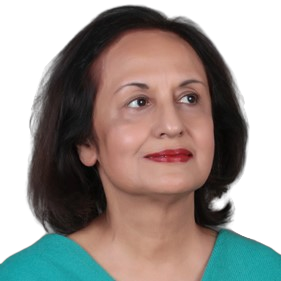by Anita Inder Singh on 12th September 2019
If Vladimir Putin thinks liberalism is obsolete when it comes to managing cultural diversity, democratic western-European leaders should not be echoing him.
Greece is one of the latest member states of the European Union to be framing measures to tackle a fresh wave of human arrivals. And the handling of such newcomers—whether they be refugees or migrant workers—by many EU countries is controversial. Together with ‘Brexit’, favoured by a small majority of enfranchised voters in 2016 in one of the world’s oldest liberal countries, the challenges of managing cultural diversity raise an important question: was Vladimir Putin right when the president of the Russian Federation told the Financial Times in June that liberalism was obsolete when it came to handling the issues implied by that imprecise term multiculturalism’?The answer is a resounding no. Collapsed states have tended to be authoritarian multicultural states—the former Soviet Union and Yugoslavia among the most famous. Their unfortunate history as illiberal autocracies is one from which some democracies, including India, could learn.
Whatever the world might think of Brexit and the clumsy handling of migration issues by many EU countries, liberal democracy offers the best chance of managing ethnically and culturally diverse states. Boris Johnson’s own brand of multiculturalism is reflected in the UK prime minister’s choice of Sajid Javid, a Briton of Muslim Pakistani origin, as his number two —the all-important chancellor of the exchequer. At the local level, in 2016 London became the first western capital to elect a Muslim mayor, Sadiq Khan, also of Pakistani origin. If refugees, migrants, Brexit, Islamophobia, racism and xenophobia have surfaced even in liberal western-European countries, the fault does not lie with liberal democracy but with the choices voters—and, more importantly, governments—sometimes make.
Political failure
Nevertheless, Putin may have touched a sensitive nerve when he spoke about the intertwining of anti-immigrant sentiment, the ‘failure’ of multiculturalism and the decline of liberalism. In any country the state creates the norms through which citizens live and operate. Respect for human rights, with their stress on individual freedom, and the equality of all citizens, safeguarded by a strong rule of law, are innate in democracy and essential to forge the political consensus that sustains it. The political failure to defend the importance of liberal values in managing multiculturalism has contributed to the rise of the xenophobic far right in Europe, some of whose leaders apparently admire authoritarian rulers like Putin—or Adolf Hitler.
What explains this failure? Some leaders of professedly ‘mature’ democracies have not challenged the far right ideologically. They have not impressed on their citizens that their countries need more newcomers and that immigrants, of any colour or national origin, have made a considerable socio-economic contribution to the host country. Unable to tackle the problems created by a decade-long financial crisis, some western-European leaders have passed the buck—to the EU, to globalisation, to ‘social media’ and even to dark-skinned immigrants.
More dangerously, perhaps, leaders of some liberal parties have adopted the xenophobic rhetoric of the far right. They—not Putin—first declared that multiculturalism had failed. Such leaders included Nicolas Sarkozy, Angela Merkel and David Cameron—at the time (late 2010 to early 2011) the respective centre-right leaders of France, Germany and the UK. In one of the world’s most liberal democracies, Cameron’s deployment of the anti-EU arguments and chauvinistic rhetoric of the United Kingdom Independence Party may have empowered his Conservatives to defeat UKIP—but ended up with British voters opting for Brexit.
An additional problem is that the leaders who lambast multiculturalism also blame immigrants for their purported reluctance, or inability, to ‘integrate’—another vague but highly politicised term. What they never explain is how a black or brown immigrant should integrate with a native white supremacist.
And it’s not just about people with dark complexions: in 21st-century Europe the ‘other’ can also be a white native Jew and anti-Semitism is rising. In liberal Britain, the Labour Party does not know how to tackle anti-Semitism within its own ranks. And by advising Jews to stop wearing the kippah in public a German official has encouraged intolerance and lack of confidence in protecting religious freedom through the rule of law.
In some countries, mainstream parties have colluded with the far right for political gain. In June, Denmark’s Social Democrats used anti-immigrant rhetoric to win the national election. Before Sweden’s general election last September, the liberal Moderates flayed multiculturalism and struck deals in local government with the hard-right Sweden Democrats. Such deals failed to win majorities for the far-right—but the Sweden Democrats did gain 13 seats and emerged as the third largest party in the Riksdag.
The May elections to the European Parliament did not result in its domination by far-right groups. But there is no room for complacency. Barely half of eligible voters cast their ballots. That did not signal a big win for liberal-democratic values and democracy.
Lucid vision
Nevertheless, constructive national liberal parties could yet craft a lucid, liberal-democratic vision for a diverse civic nation, based on shared values and identity. Problems arising from immigration and cultural differences can be managed through tolerance and individual freedom. Accountable leaders, who do not promote politicians who despise democratic norms, are also needed.
Many Europeans would be receptive to such a renewed liberalism. More than 70 per cent of the population in several EU countries favour taking in refugees fleeing war and violence. Putin was, therefore, wrong to say that some elements of the liberal idea, such as multiculturalism, were no longer tenable, having come into conflict with the interests of the overwhelming majority.
Democracy is rightly premised on uncertainty and imperfection. That is precisely why it offers choices. In contrast, autocrats use force to build the unfree paradise of their imaginations. There is no doubting the reality. When it comes to managing culturally diverse societies, liberal democracy offers pragmatic solutions.
(Anita Inder Singh, a citizen of Sweden, has been a fellow at the National Endowment for Democracy in Washington DC and has taught international relations at the University of Oxford and the London School of Economics. She was a founding professor of the Centre for Peace and Conflict Resolution in New Delhi.) – Social Europe




